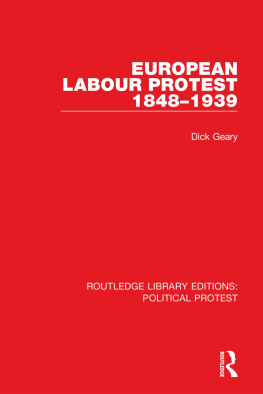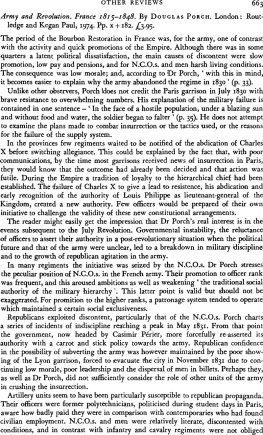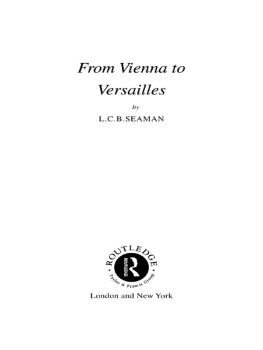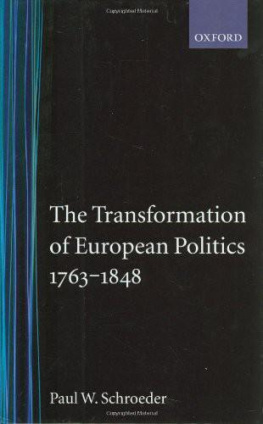First published 2007 by Ashgate Publishing
Published 2016 by Routledge
2 Park Square, Milton Park, Abingdon, Oxon OX14 4RN
711 Third Avenue, New York, NY 10017, USA
Routledge is an imprint of the Taylor & Francis Group, an informa business
Copyright Frederick C. Schneid 20011 For copyright of individual articles please refer to the Acknowledgements.
All rights reserved. No part of this book may be reprinted or reproduced or utilised in any form or by any electronic, mechanical, or other means, now known or hereafter invented, including photocopying and recording, or in any information storage or retrieval system, without permission in writing from the publishers.
Notice:
Product or corporate names may be trademarks or registered trademarks, and are used only for identification and explanation without intent to infringe.
Wherever possible, these reprints are made from a copy of the original printing, but these can themselves be of very variable quality. Whilst the publisher has made every effort to ensure the quality of the reprint, some variability may inevitably remain.
British Library Cataloguing in Publication Data
European politics 18151848. (The international library
of essays on political history)
1. EuropePolitics and government18151848.
2. EuropeHistory18151848. 3. ForeignForeign
relations18151871.
I. Series II. Schneid, Frederick C.
940.28dc22
Library of Congress Cataloging-in-Publication Data
European politics, 18151848 / edited by Frederick C. Schneid.
p. cm.
Includes bibliographical references and index.
ISBN 9780754625759 (hardback : alk. paper) 1. EuropePolitics and government18151848.
2. RevolutionsEuropeHistory19th century. I. Schneid, Frederick C.
D383.E83 2011
940.283dc22
2010018685
ISBN 9780754625759 (hbk)
The editor and publishers wish to thank the following for permission to use copyright material.
Association for Slavic, East European, and Eurasian Studies for the essay: Lawrence P. Meriage (1978), The First Serbian Uprising (18041813) and the Nineteenth-Century Origins of the Eastern Question, Slavic Review, , pp. 42139.
Cambridge University Press for the essays: Alan Reinerman (1971), Metternich, Italy and the Congress of Verona, 18211822, The Historical Journal, , pp. 26387. Copyright 1971 Cambridge University Press; Robert D. Billinger Jr (1976), The War Scare of 1831 and PrussianSouth German Plans for the End of Austrian Dominance in Germany, Central European History, , pp. 20319. Copyright 1976 Cambridge University Press; Roger Bullen (1977), France and the Problem of Intervention in Spain 18341836, The Historical Journal, , pp. 36393. Copyright 1977 Cambridge University Press; Iwan Morgan (1978), French Policy in Spanish America, 18301848, Journal of Latin American Studies, , pp. 30928. Copyright 1978 Cambridge University Press.
Duke University Press for the essay: Michael P. Costeloe (1981), Spain and the Latin American Wars of Independence: The Free Trade Controversy, 18101820, Hispanic American Historical Review, , pp. 20934. Copyright 1981 Duke University Press.
The Catholic University of America Press for the essay: Frank J. Coppa (1969), Realpolitik and Conviction in the Conflict between Piedmont and the Papacy during the Risorgimento, Catholic Historical Review, , pp. 579612. Copyright 1969 The Catholic University of America Press.
East European Quarterly for the essays: George F. Jewsbury (1979), Nationalism in the Danubian Principalities, 18001825 A Reconsideration, East European Quarterly, , pp. 28796; Fritz L. Hoffman (1967), Metternich and the July Revolution, East European Quarterly, , pp. 14354.
John Wiley and Sons for the essay: David T. Murphy (1991), Prussian Aims for the Zollverein, 18281833, Historian, , pp. 285302.
Mohr Steibeck GmbH & Co. Kg for the essay: W.O. Henderson (1981), The German Zollverein and the European Economic Community, Zeitschrift fr die gesamte Staatswissenschaft, , pp. 491507.
Oxford University Press for the essays: David McLean (1981), The Greek Revolution and the Anglo-French Entente 18431844, English Historical Review, , pp. 11729; James M. Brophy (2004), Violence Between Civilians and State Authorities in the Prussian Rhineland, 18301846, German History, , pp. 135.
Proceedings of the Consortium on Revolutionary Europe for the essay: Enno. E. Kraehe (1974), From Rheinbund to Deutscher Bund: The Road to European Equilibrium, Proceedings of the Consortium on Revolutionary Europe, , pp. 16375.
The University of Chicago Press for the essays: Paul W. Schroeder (1992), Did the Vienna System Rest on a Balance of Power?, American Historical Review, , pp. 683706; Robert Jervis (1992), A Political Science Perspective on the Balance of Power and the Concert, American Historical Review, , pp. 71624.
Every effort has been made to trace all the copyright holders, but if any have been inadvertently overlooked the publishers will be pleased to make the necessary arrangement at the first opportunity.
This series focuses on key episodes and issues in political history and does so by bringing together essays selected from journals that exhibit careful analysis of political history. The volumes, each of which is edited by an expert in the field, cover crucial time periods and geographical areas, particularly Europe and the USA. Each volume represents the editors selection of seminal essays on political history in his particular area of expertise, while an introduction presents an overview of the issues in the area, together with comments on the background and significance of the essays chosen.
The strength and nature of political beliefs reflect, to a great extent, the degree to which ideologies provide a sense of identity, value and purpose to both individuals and the community. Like all important questions about recent and modern society, this is one that can be answered in a different way by commentators and by readers. Secular ideologies over the last 250 years tended to rely on the notion of progress and the desire of humans to improve their condition, and thus rejected the Christian lapsardian view of human existence with its emphasis on sin and humankinds fallible nature. Although they varied in the political, economic, social and cultural analyses and prescriptions, such ideologies shared a belief that it is possible, and necessary, to improve the human condition and that such a goal gives meaning to politics and society. In short, reform was seen as an end in itself and progress as something attainable.













